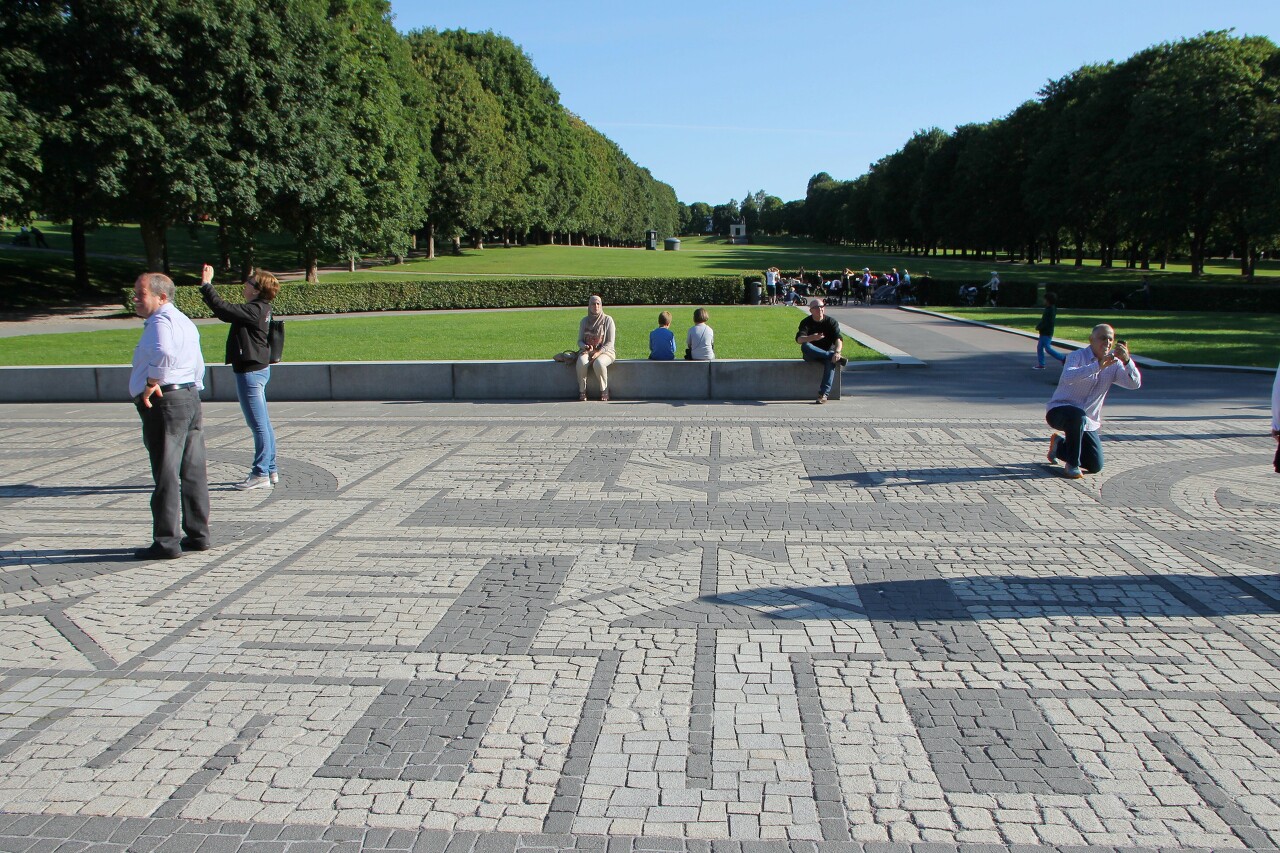Vigeland Fountain (Fontenen)
In 1906, the Oslo city government decided to erect a fountain on the square in front of the Parliament. Gustav Vigeland presented a plaster model, but construction was never started. Despite this, the sculptor continued to work, and over time the fountain turned into a grandiose composition of 60 sculptures. In total, Vigeland worked on the fountain for more than 30 years.
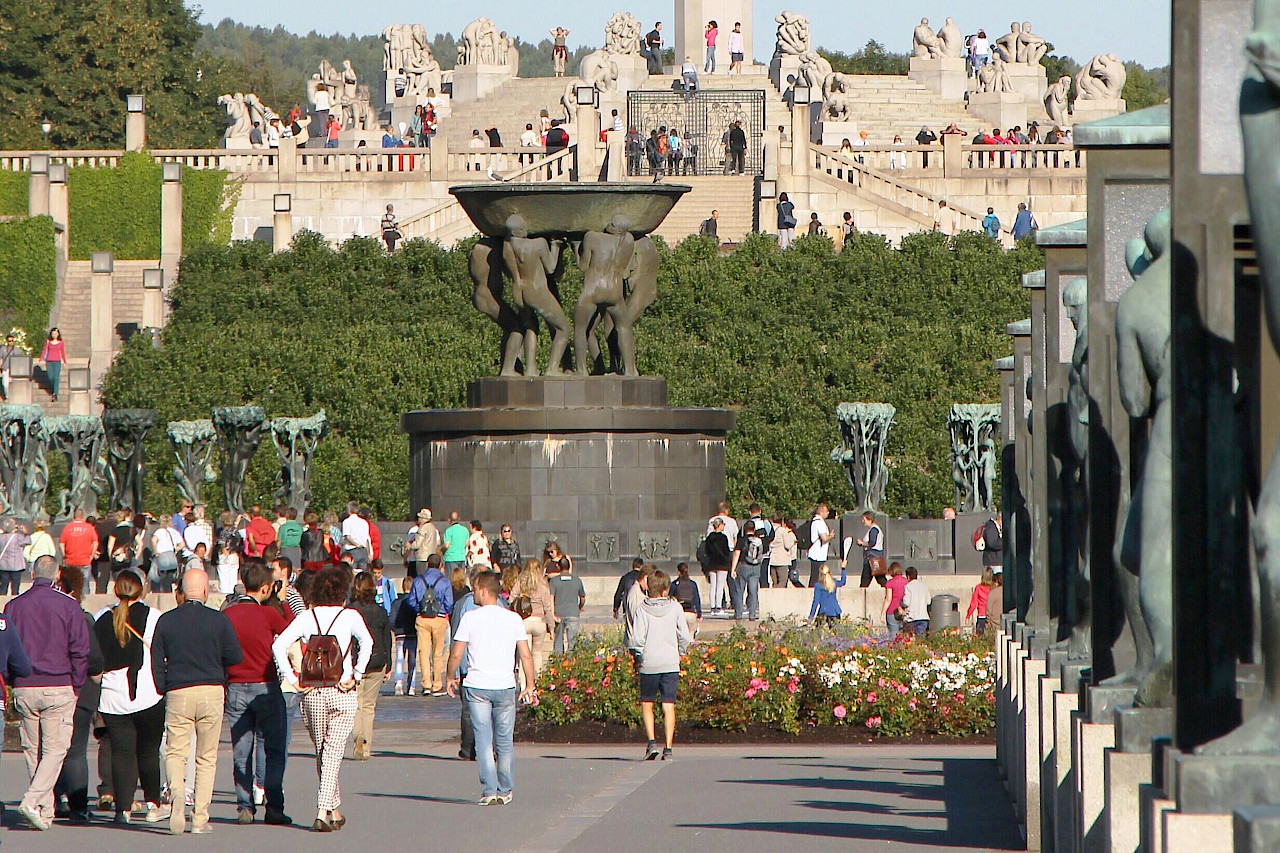
In 1924, the municipality allocated the sculptor a building for a workshop on the territory of Frogner Park, where he found a place to erect his creation. The fountain became the center of an open-air sculpture exhibition, which Vigeland worked on for the rest of his life. However, the great sculptor never saw his creation in its completed form, the construction of the fountain was completed in 1947.
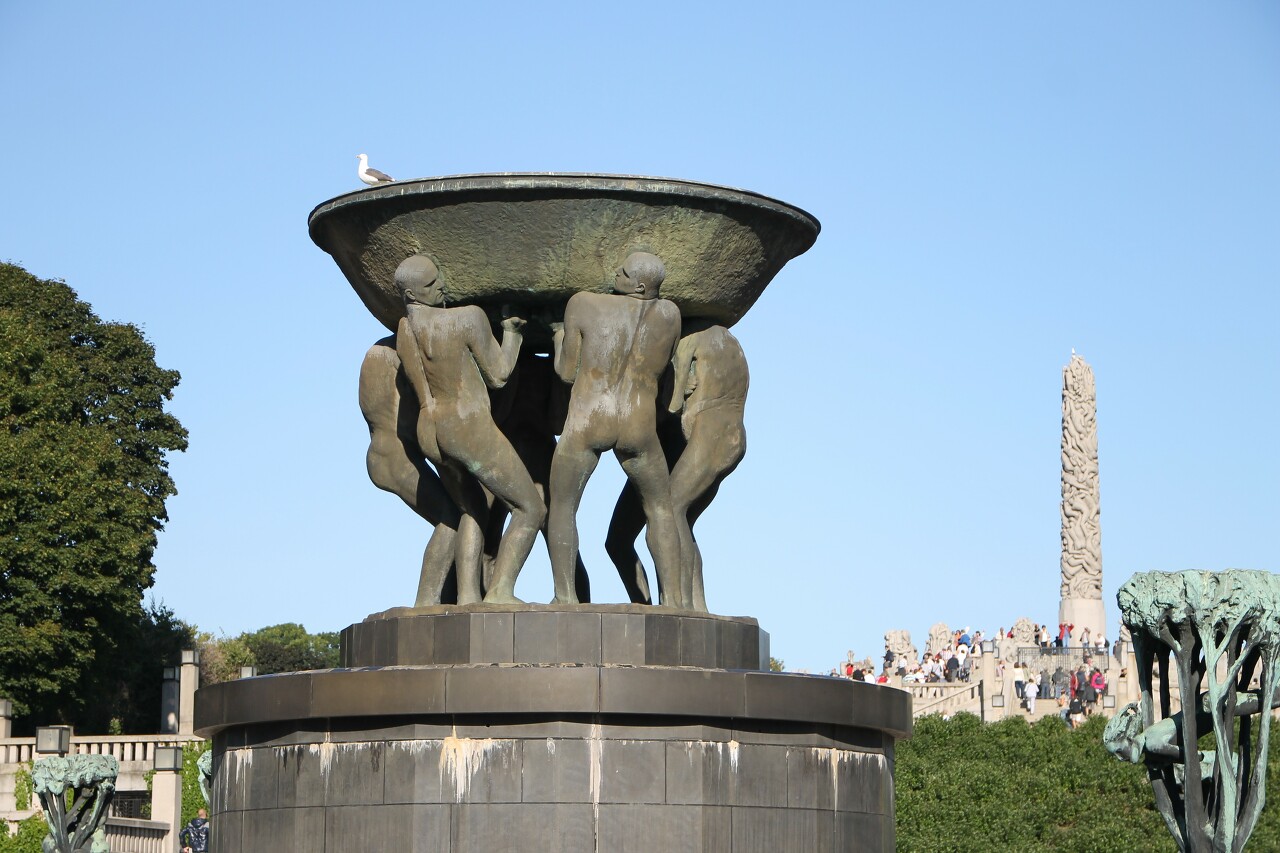
The fountain bowl is held on their shoulders by six men. According to the author's idea, this symbolizes the "burden of life".
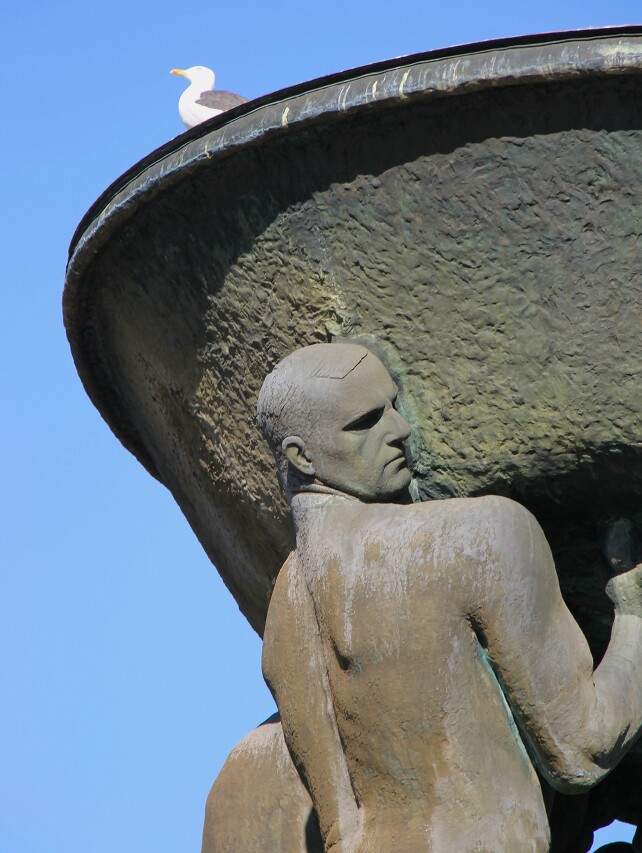
Twenty bronze trees entwining the figures of people represent all stages of human life.
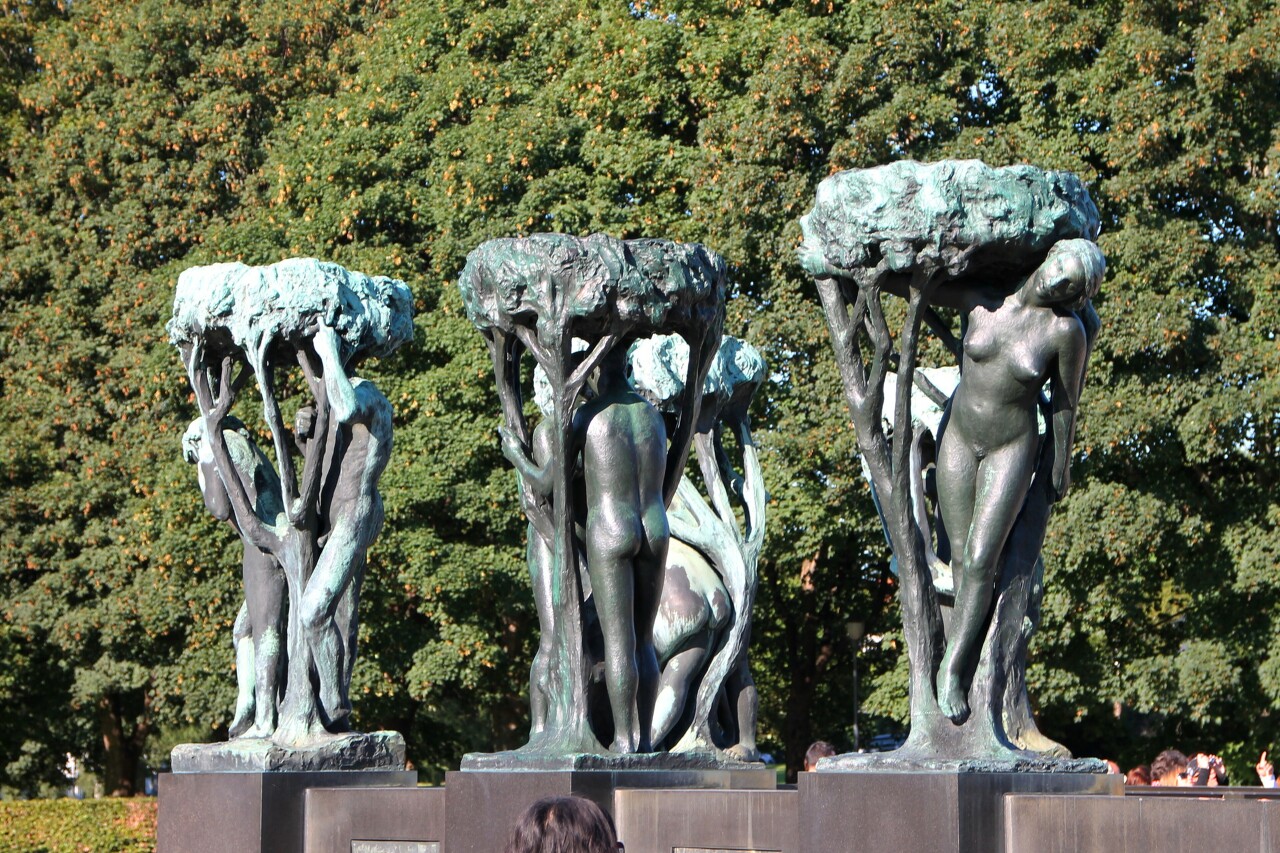
The beginning of life is birth and infancy.
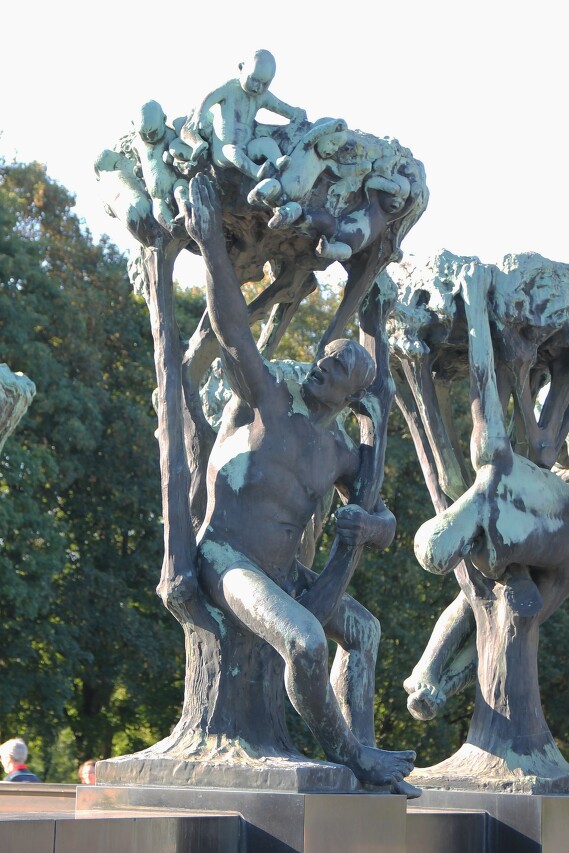
Teenage period.
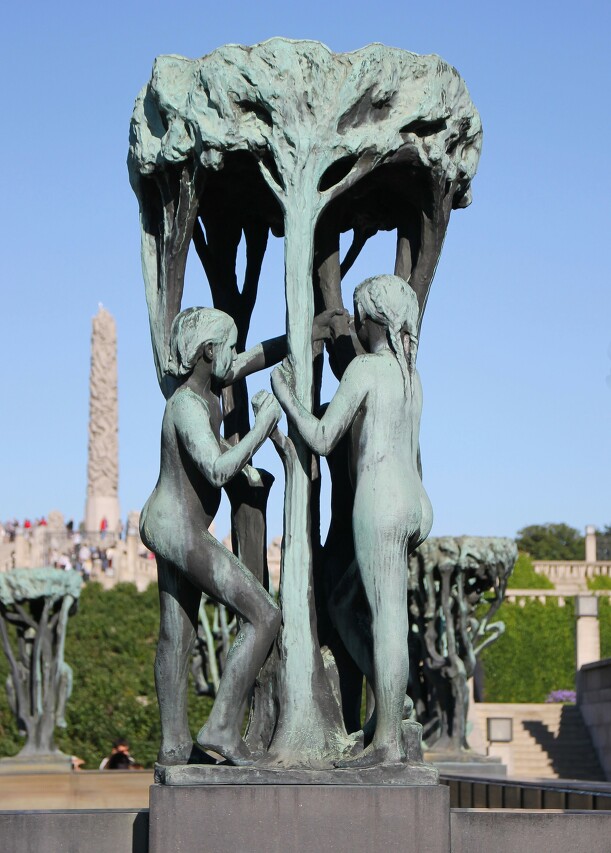
Youth.
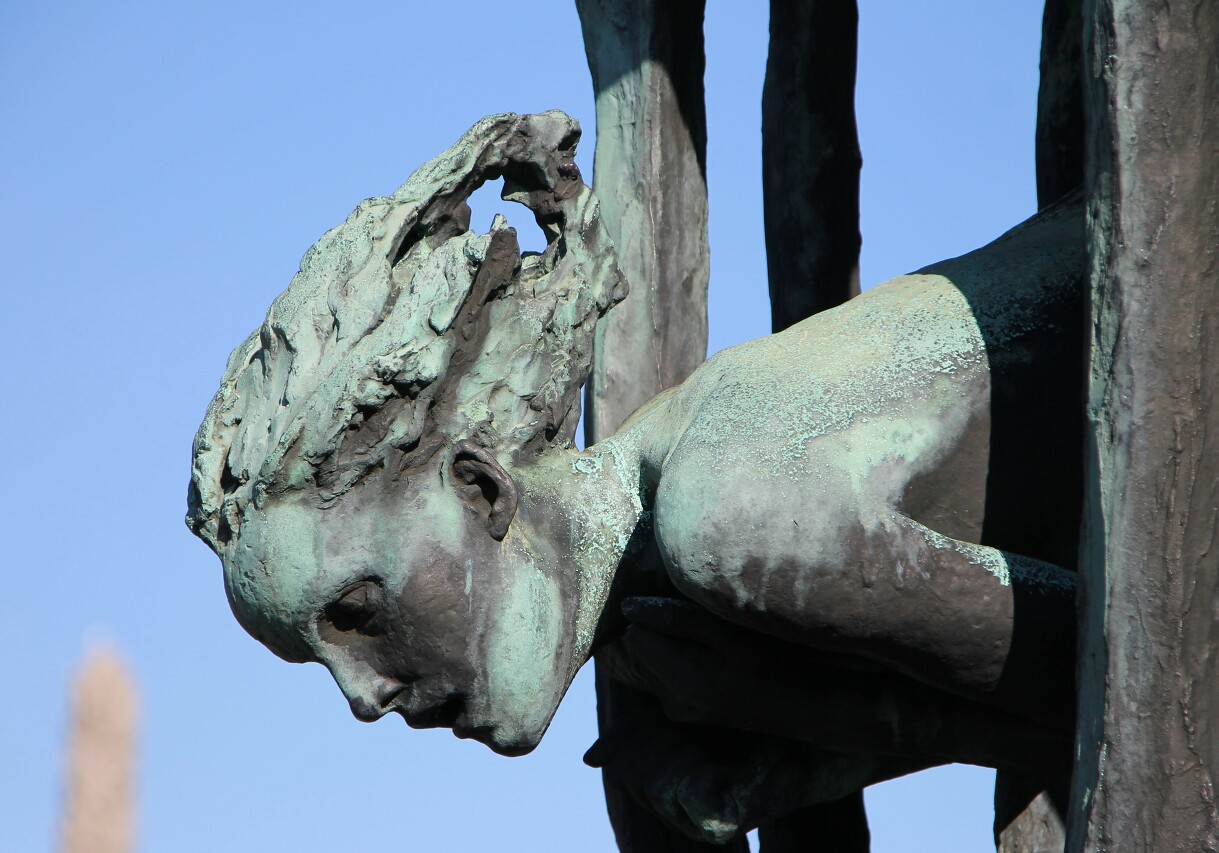
Dreams and flights of fancy.
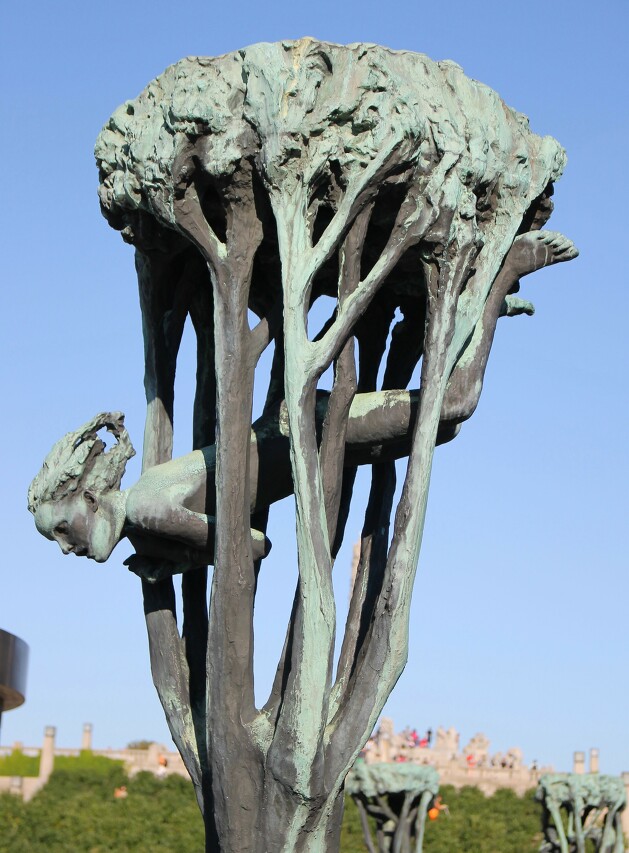
Relationships between men and women, creating a family.
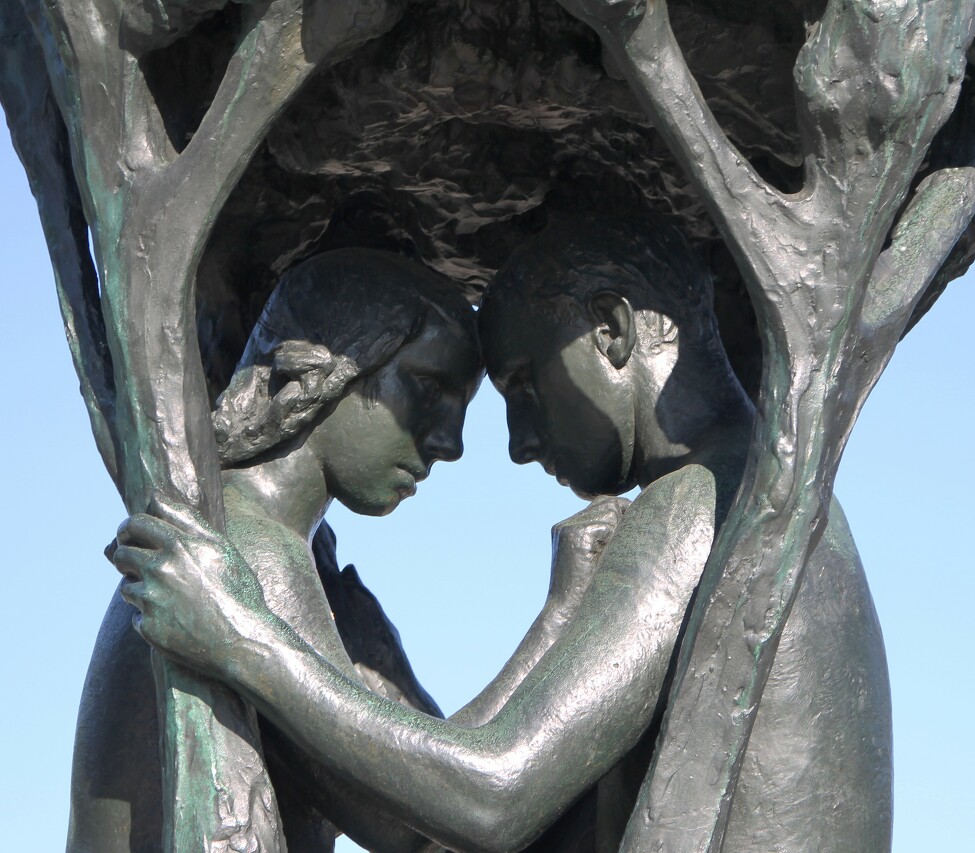
Motherhood.
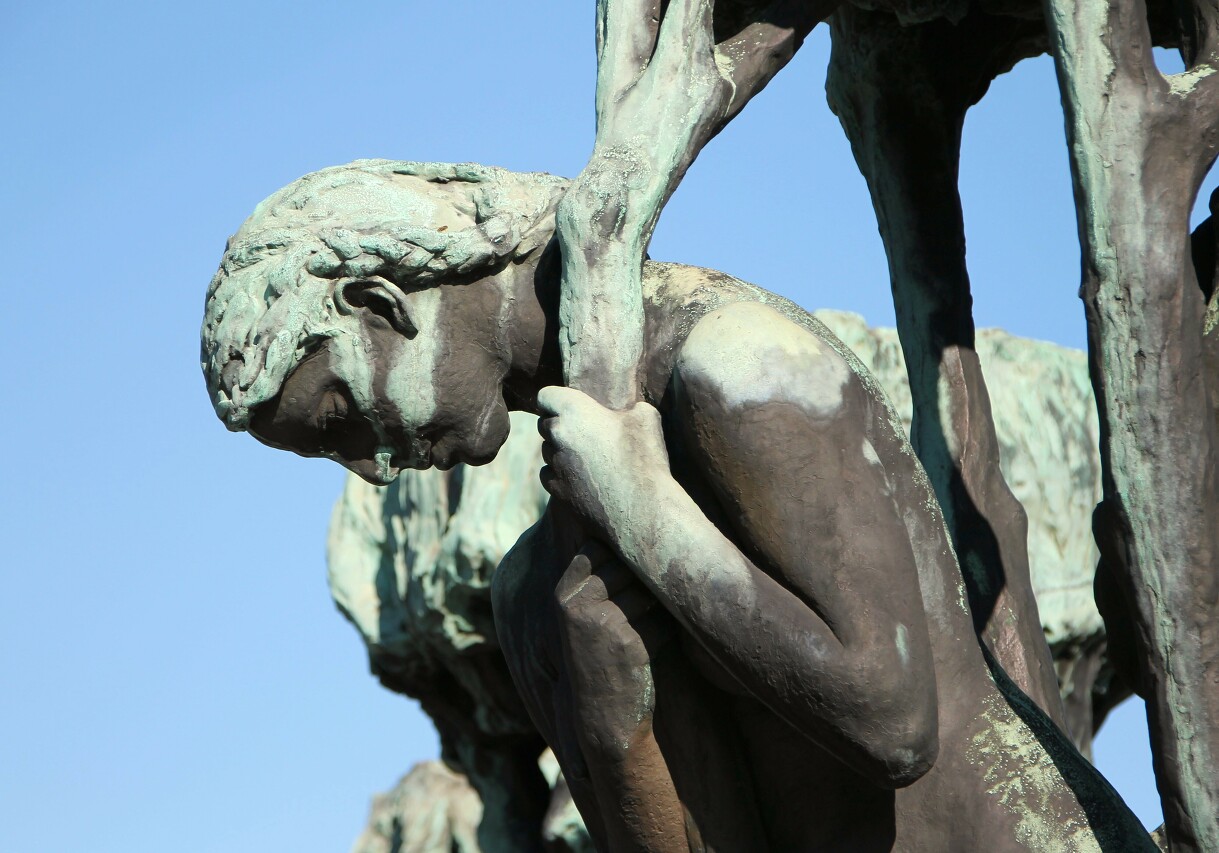
The wisdom of adulthood.
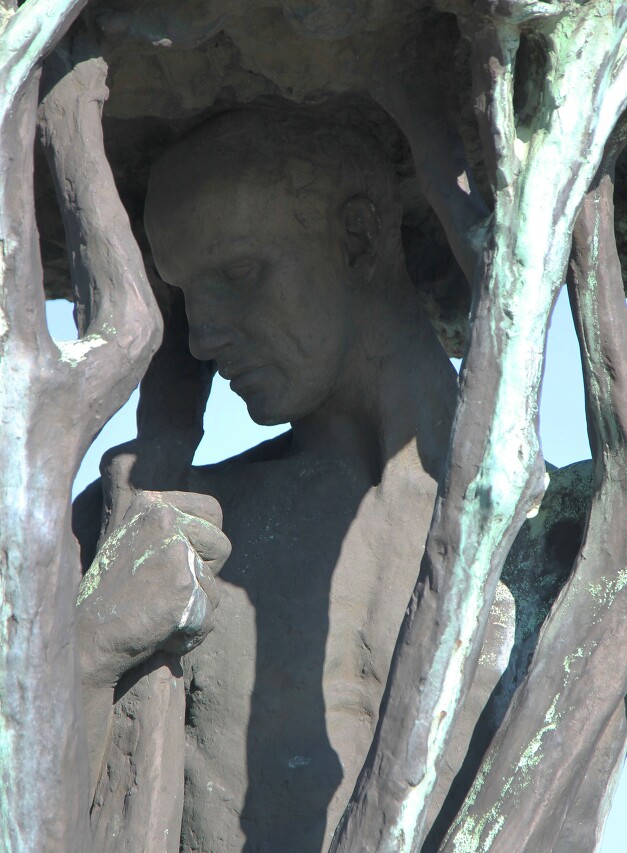
Continuity of generations.
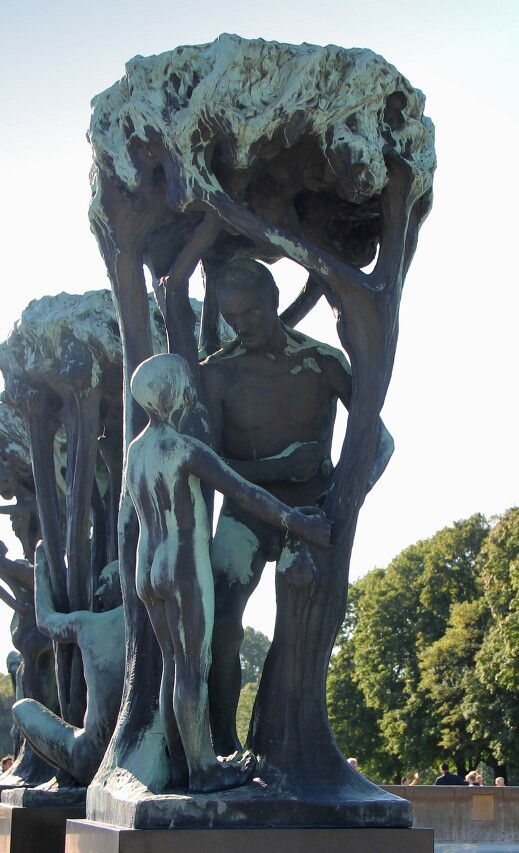
The transmission of life experience to their grandchildren.
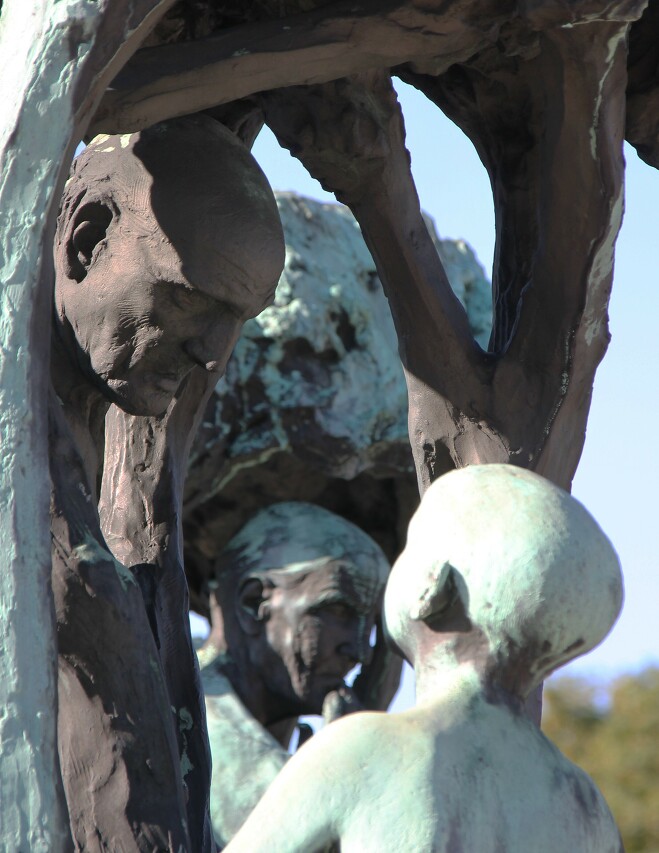
Old age and death.
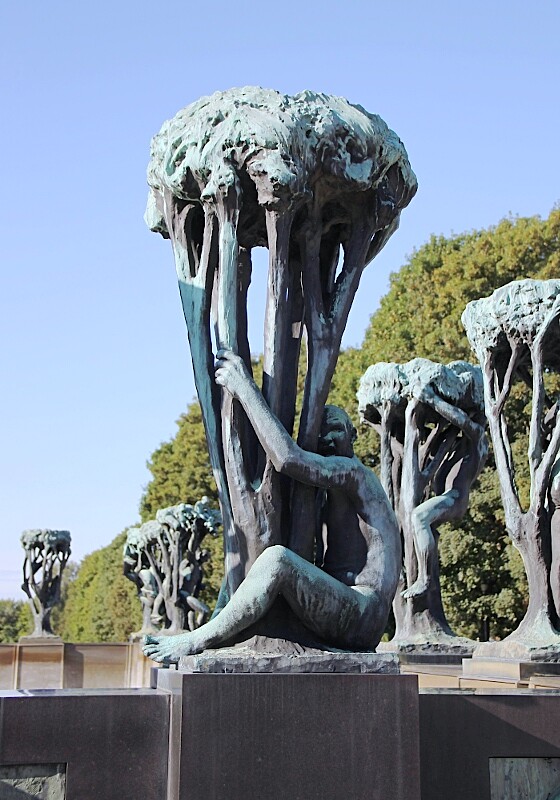
Bas-reliefs on the pedestal also follow the theme of sculptural groups.
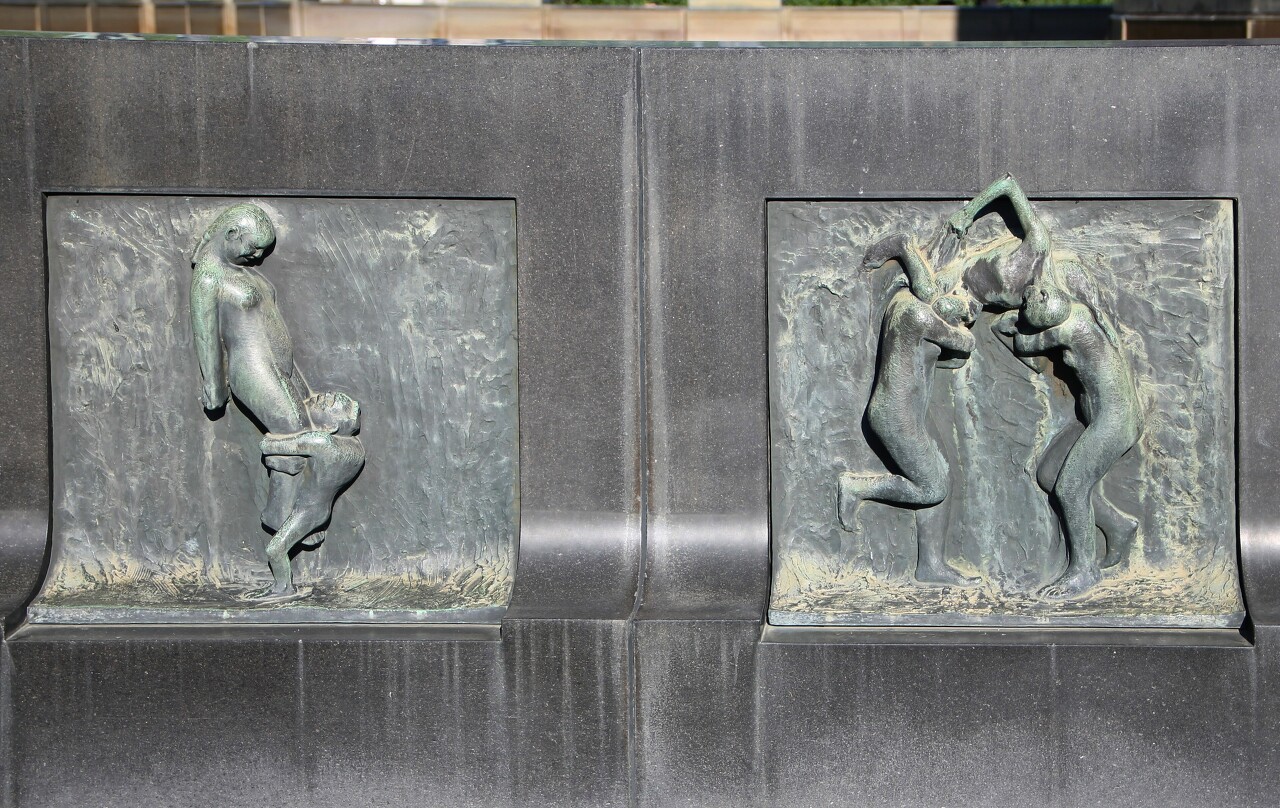
Most of the bas-reliefs depict the games of parents with children.
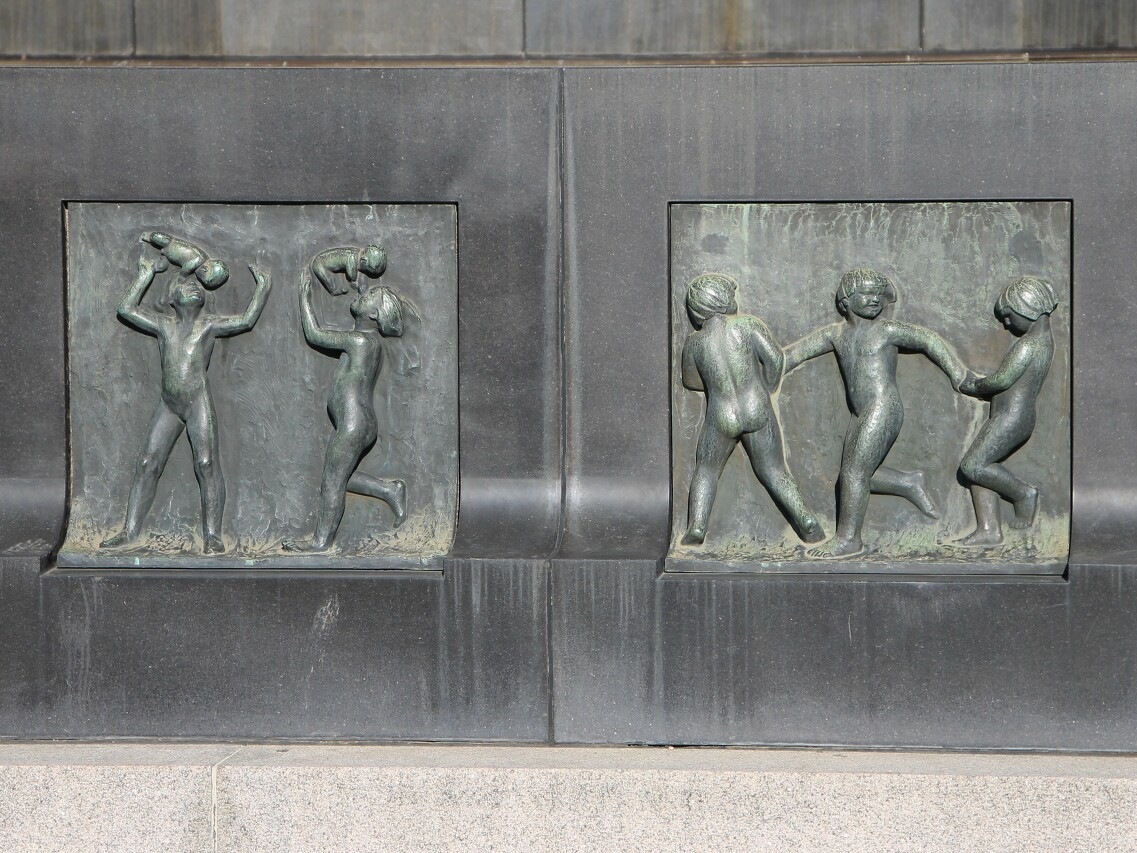
And in fact, if you think about it, most of a person's life is spent in one of these qualities - first as a child, then as a parent.
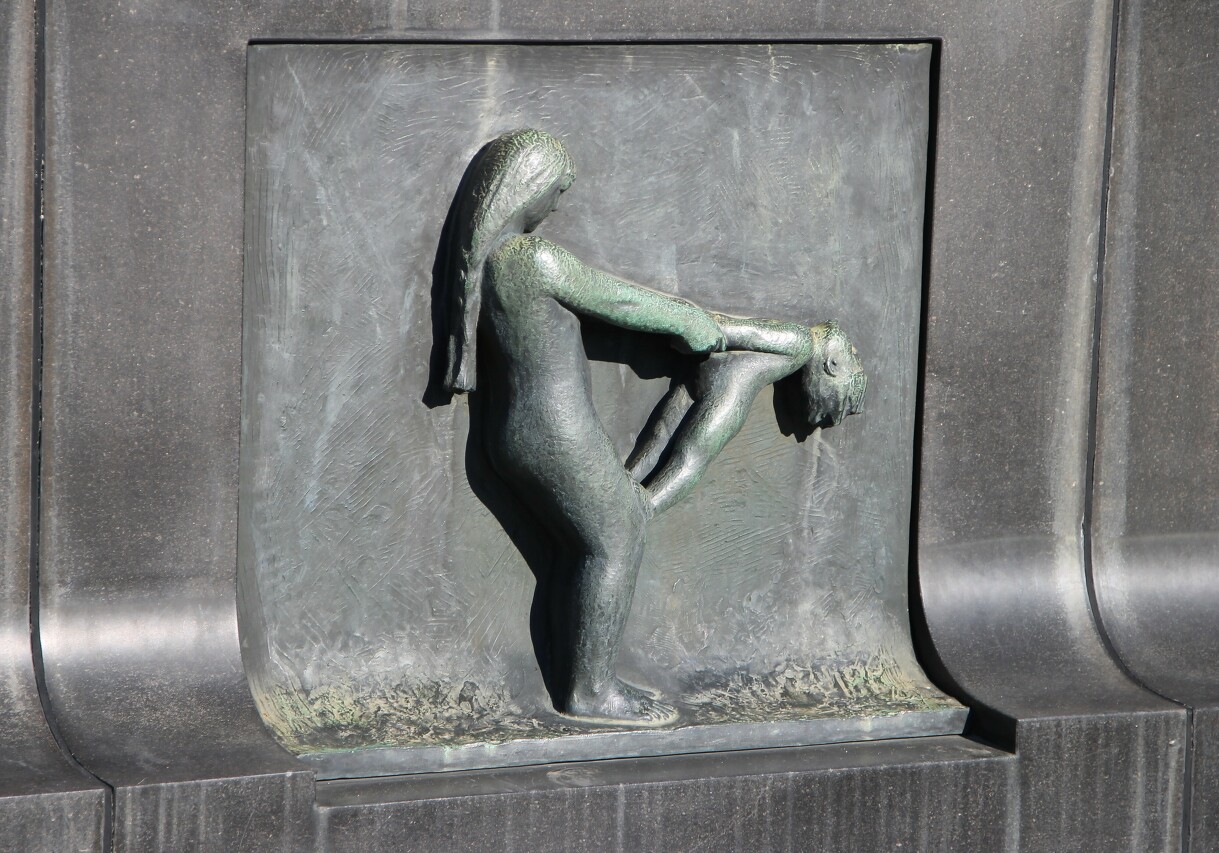
Vigeland produced 112 bas-reliefs, but here we can only see 60.
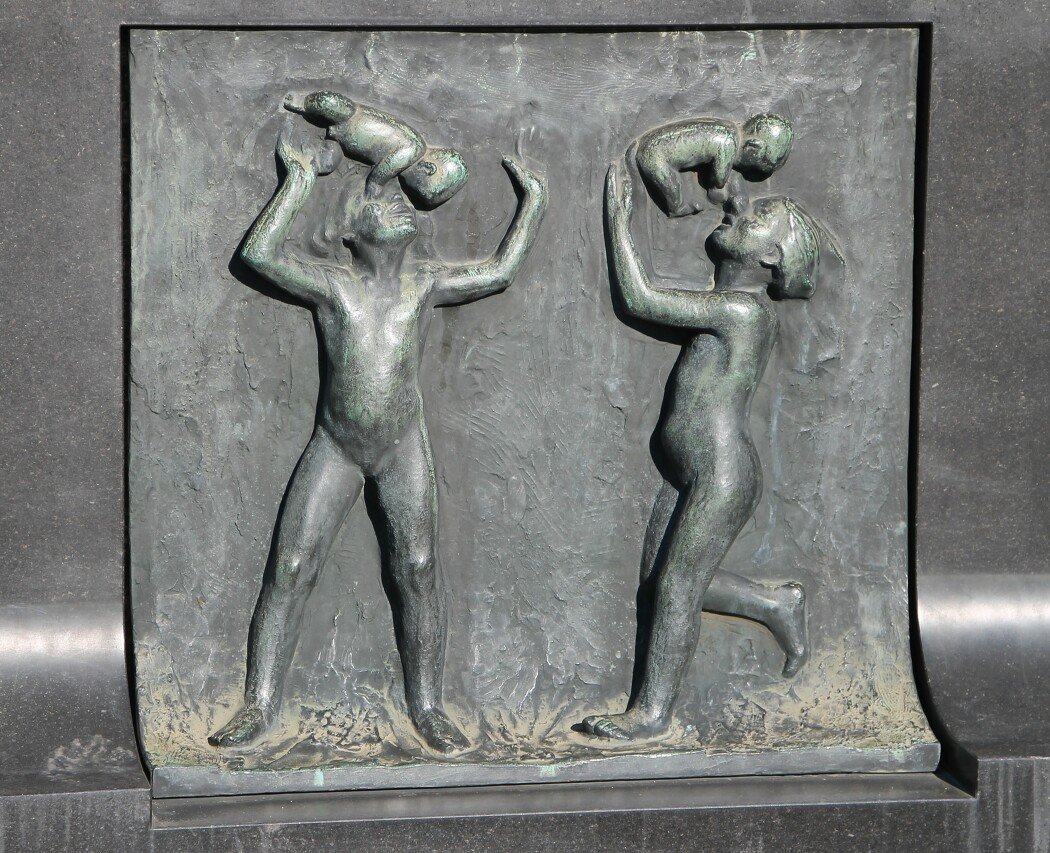
By depicting his characters among the branches of trees, the sculptor wanted to emphasize the inseparable connection of man with nature.
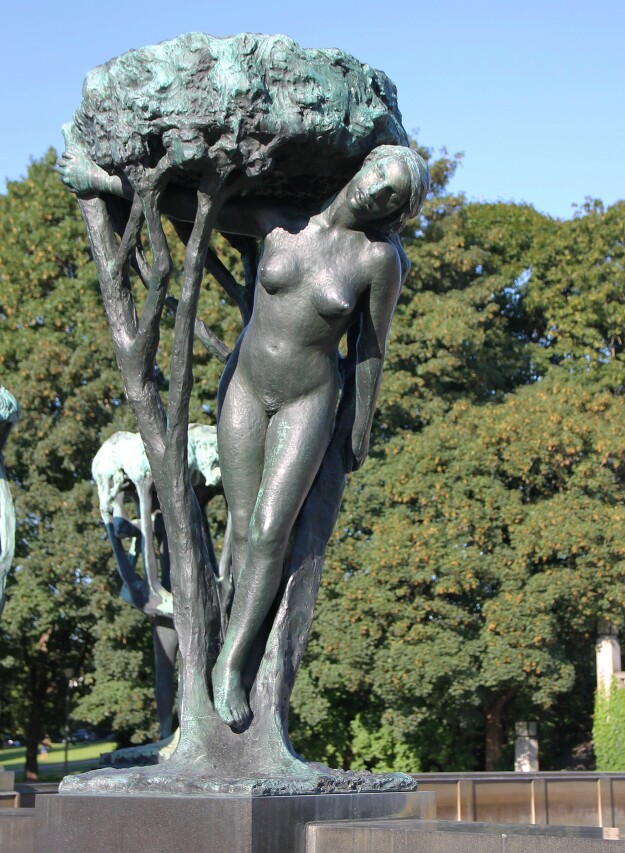
Some of the bas-reliefs depict people in contact with the animal world. Here a person does not oppose himself to wild animals, but communicates with them as with friends.
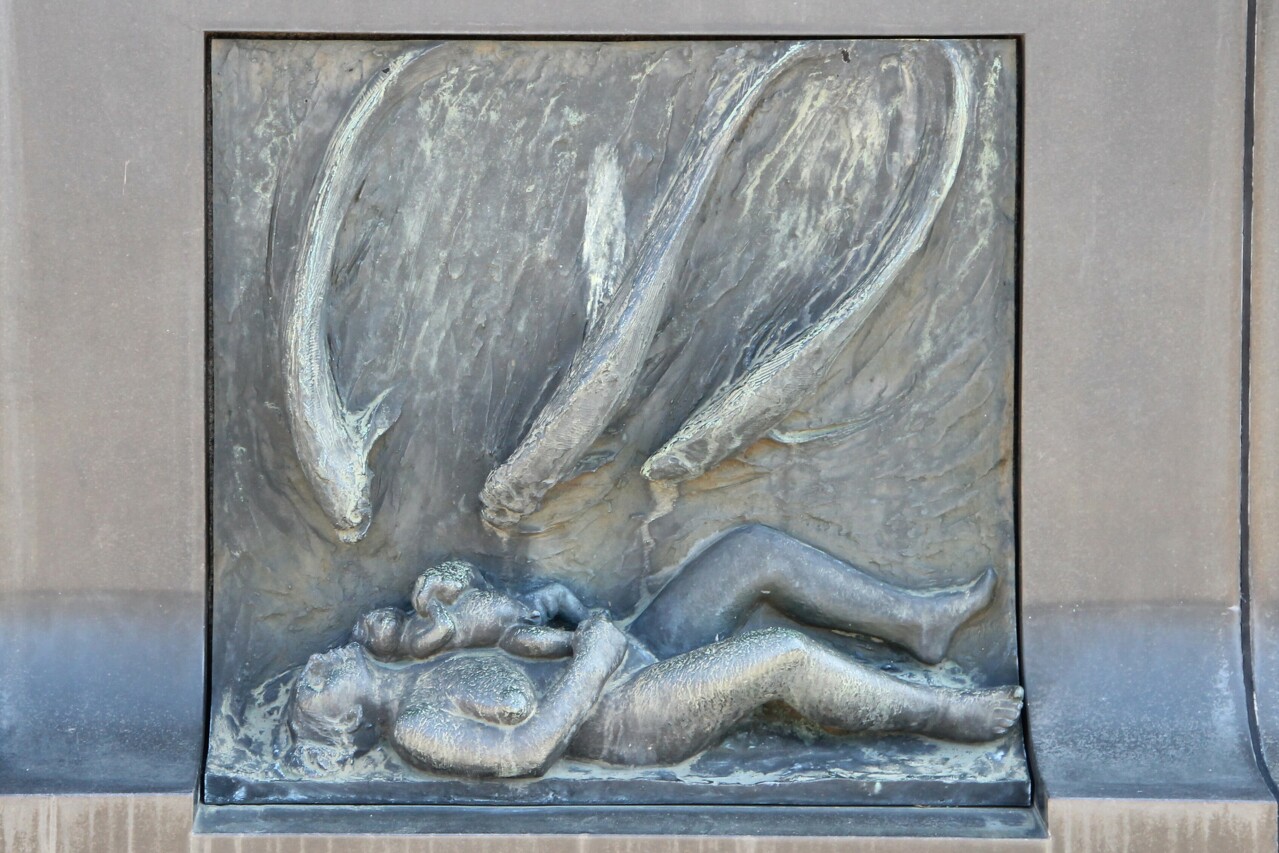
A girl sitting on a bear.
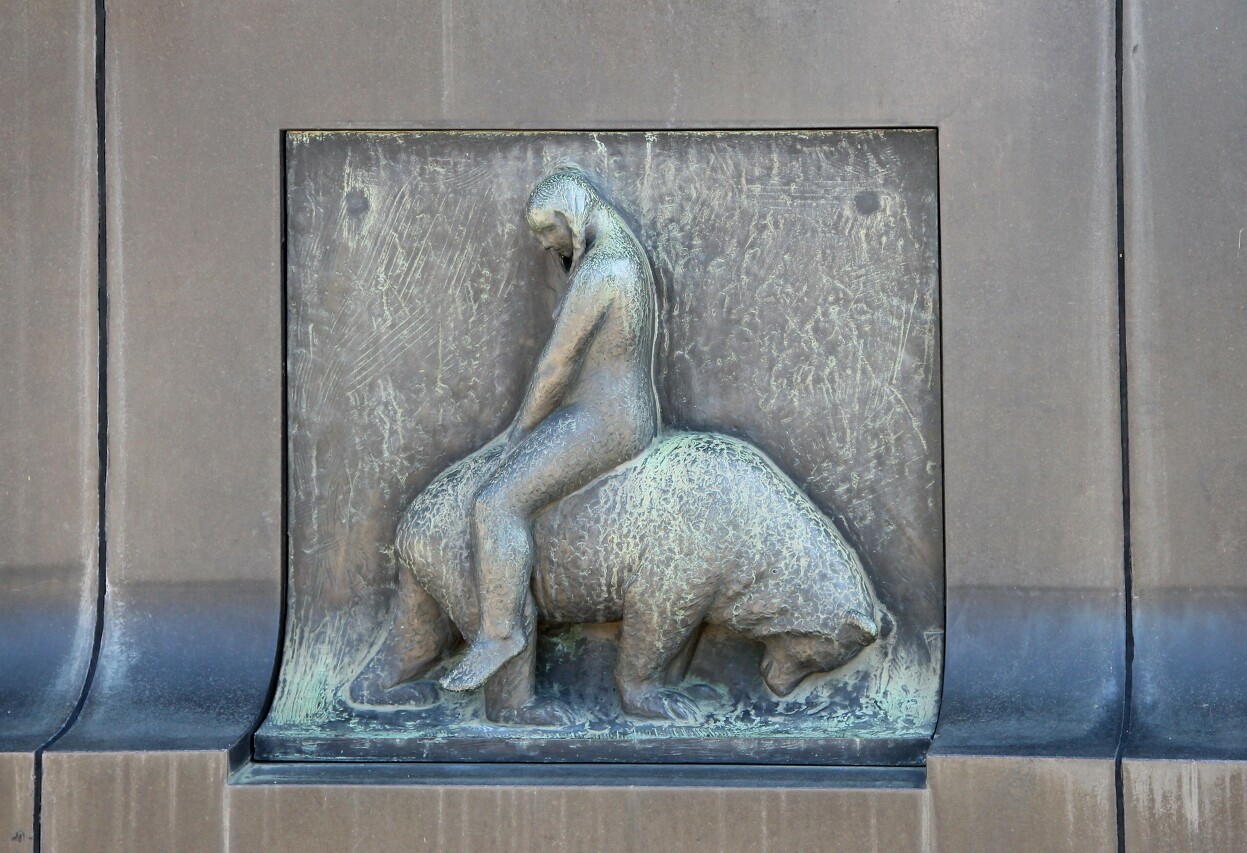
A boy with an eagle.
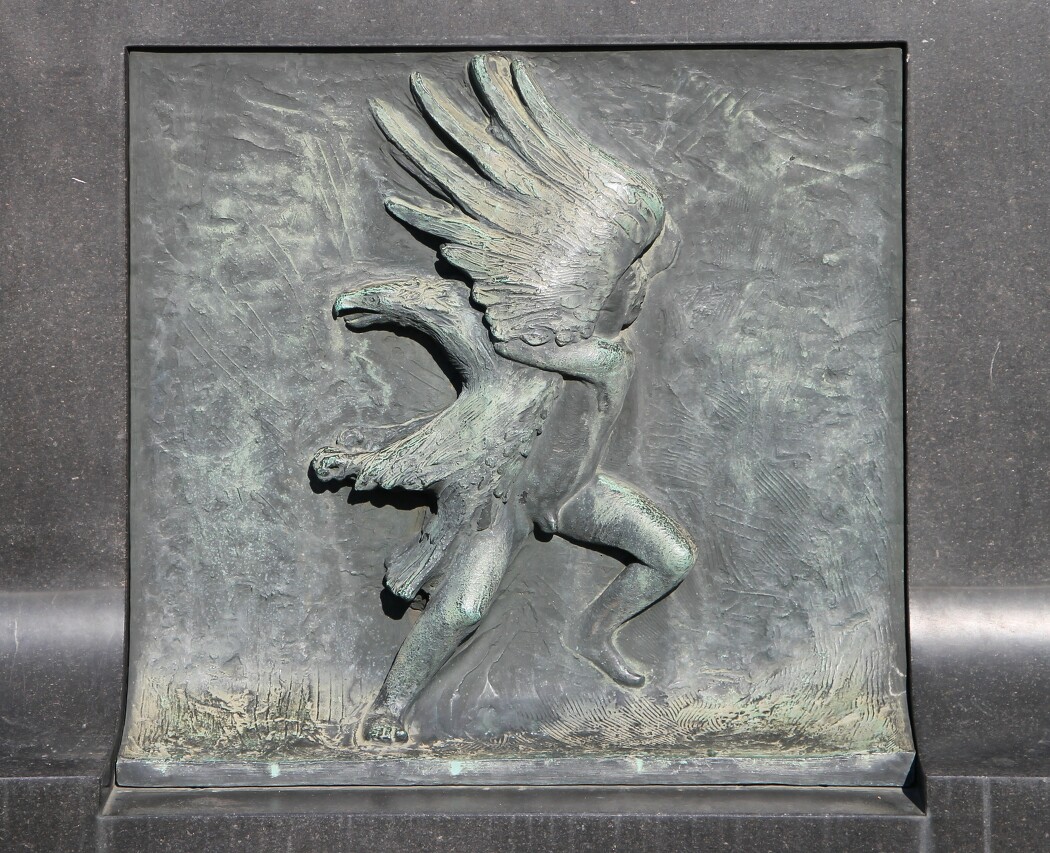
The fountain is surrounded by a mosaic of black and white granite with an area of 1800 square meters. The pattern of the mosaic forms a labyrinth, the length of which is more than 3000 meters.
